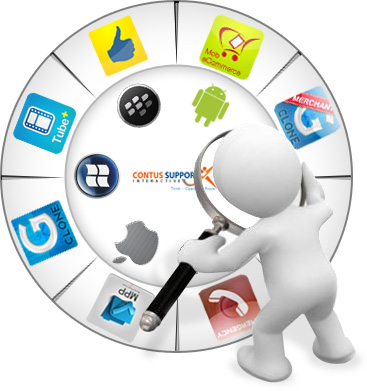Due to vast growth in the telecom sector, the need for mobile application testing has increased drastically. We can see every now and then, mobile manufacturing companies launching new handsets with different operating systems, hardware specifications and software applications. Since mobile app development is an open platform, many third party software development companies introduce new applications compatible with all versions of operating system. Hence, due to this underlined need to track performance and user acceptability demands high tech mobile application testing.
What is mobile application testing?
Mobile application testing is a way to track the performance, accessibility and security of any new application that is to be introduced. In order to do so, the tester should have complete knowledge of the application put for testing. Also, they need to check if the app is developed in-house or developed by any third party software company. In case if it is developed in-house, then the application is tested at all stages of development, however for third party application, one need to review the complete structure, procedures, features, and security and support options. Every mobile handset needs to be tested on the parameters of GPS connectivity, compatibility with Bluetooth, connectivity on wifi, speed of the internet; any lags etc must be clearly implicit and legitimate. Also, the need of the application, what kind of platforms it would run on, risk factors and targeted audience should be reviewed.
Kinds of Mobile Application Testing
Performance testing – This testing is carried out to check the performance of the application. During this test, the developers try to identify problems related to speed, graphic interface, network, display, power consumption etc. Anything that might impact the performance of the handset is marked and sent for improvement
Functional Testing – Mobile app testing inspects functionality of software and its assimilation with mobile handset, Operating system platforms and technology. Check if the app have any compatibility issues and has the capability to provide users a fulfilling experience.
Security Testing – All levels of security is checked to ensure no breach of personal information on your device while using the application
Usability Testing – this testing is performed from a consumer perspective. It checks whether the application is user friendly and easy to navigate, fulfils customer expectations, how is it different from other existing applications and if compatible with the hardware.
Peer Testing – During this testing, the app is distributed amongst a set of people and look for any drawbacks as a third eye view
Crash Testing – This test is performed to check whether the app is able to take the load and check the stability. The developers also check if this application impacts other applications downloaded on the handset making it a bad user experience.
Mobile testing is not a child’s play. With new variety of handsets introduced with different shaped and sizes, hardware and operating systems, people well equipped with knowledge of testing should do the job. There are many mobile application companies in Dallas that can be contacted for any testing requirement. It is a job of a tester to properly test the functionality and compatibility on all operating systems.

